Mirror Blu-ray Movie
HomeMirror Blu-ray Movie 
Зеркало / ZerkaloCriterion | 1975 | 107 min | Not rated | Jul 06, 2021
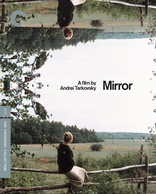
Movie rating
8.1 | / 10 |
Blu-ray rating
| Users | 0.0 | |
| Reviewer | 4.5 | |
| Overall | 4.5 |
Overview
Mirror (1975)
Writer-director Andrei Tarkovsky draws on episodes from his own life in this story of a dying man reflecting on his relationships with his parents, wife and son. The film includes a number of reflections on the Russian people and their history, using the life of one man to consider the Russian experience from the Second World War through to the end of the Stalinist period.
Starring: Margarita Terekhova, Oleg Yankovsky, Nikolay Grinko, Anatoliy Solonitsyn, Alla DemidovaDirector: Andrei Tarkovsky
| Foreign | Uncertain |
| Drama | Uncertain |
| History | Uncertain |
| Biography | Uncertain |
Specifications
Video
Video codec: MPEG-4 AVC
Video resolution: 1080p
Aspect ratio: 1.37:1
Original aspect ratio: 1.37:1
Audio
Russian: LPCM Mono (48kHz, 24-bit)
Subtitles
English
Discs
Blu-ray Disc
Two-disc set (2 BDs)
Playback
Region A (locked)
Review
Rating summary
| Movie | 4.0 | |
| Video | 5.0 | |
| Audio | 5.0 | |
| Extras | 5.0 | |
| Overall | 4.5 |
Mirror Blu-ray Movie Review
Reviewed by Dr. Svet Atanasov July 26, 2021Andrei Tarkovsky's "Mirror" (1975) arrives on Blu-ray courtesy of Criterion. The supplemental features on the disc include new video interview with composer Eduard Artemyev; archival interviews with Andrei Tarkovsky; new documentaries; and more. In Russian, with optional English subtitles for the main feature. Region-A "locked".
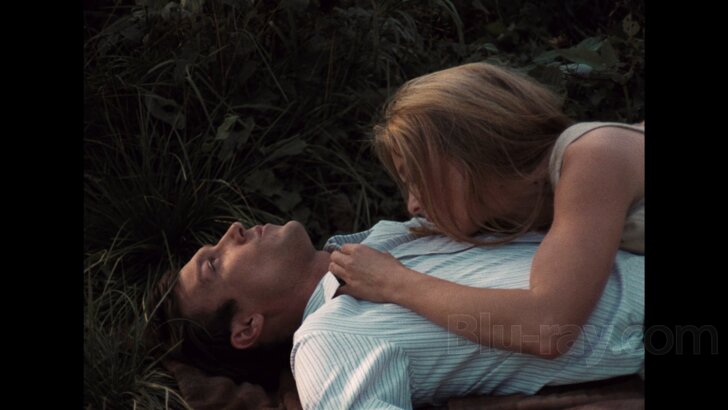
They say that when you are about to die, your entire life flashes before your eyes. Your mind abruptly unleashes all of the memories you have deposited in it over the years, even the ones you have forgotten existed, and in a single moment, you reexperience your entire cycle of existence. Then your mind permanently shuts down and everything goes dark.
Assuming they are telling the truth, have you ever wondered how this final reset really happens? Does it actually last a single moment? Or does the mind have the ability to redefine your perception of time so that the final reset becomes a lot longer? Could it be that in real time it is still measured in a single moment, but your mind no longer registers it as such, and if so, could this be the reason why the final reset is supposed to be so complete and intense? Think about it. Your mind rewinds your entire life and all of the memories it has been asked to preserve for you in a single moment. If true, it is astonishing, isn't it? You have to wonder how your mind arranges the events and memories that defined your existence as well. Are they forced out in a chronological order? Or is it a spontaneous flush of sorts, where the most profound ones overwhelm the rest one final time?
Everything that you will see in Andrei Tarkovsky’s film Mirror takes place in the mind of a dying man in his forties. It might be during the single moment before his mind permanently shuts itself down, or during a prolonged agony that imitates what could be the final stage of his existence. It is unclear. Why? Well, there are two good answers, and they both actually present all sorts of new questions. The simple answer is that it is done entirely by design so that your experience with the film -- which I assure you won’t be an easy one -- will force you to ponder various ‘what if’ scenarios that will then entice you to formulate just as many ‘logical’ explanations addressing new secondary questions. The more complex answer is that all of the memories that emerge from the dying man’s mind are pieces of a ‘reflection’ that actually reveals plenty about the post-war transformation of his country as well as the lives of ordinary people like him.
There isn’t a shortage of articles written by supposedly knowledgeable critics that explain in great detail how to experience and correctly deconstruct Mirror. You can also watch archival interviews with Tarkovsky that should point you in the right direction. They could be helpful, but the truth is that there isn’t a proper way to experience and deconstruct this film. Indeed, it engages, frustrates and delights in ways that quite simply aren’t universal. A viewer from the West will easily detect the pain and disillusionment that permeate the dying man’s scattered memories, but only a viewer from the East (the former Soviet Union and possibly its Eastern European satellites) that has experienced his reality will grasp the great sadness that comes with them as well. The latter is part of a profound but, at the same time, very particular realization that a precious life has been wasted because it had to be lived at the wrong time. It is the great tragedy that is at the heart of this film, not the man’s seemingly inevitable death, because it perfectly summarizes the existence of millions of other men and women like him at the time when Tarkovsky made it.
*Mirror has been restored in 2K from the original 35mm camera negative at Mosfilm in Russia.
Mirror Blu-ray Movie, Video Quality 
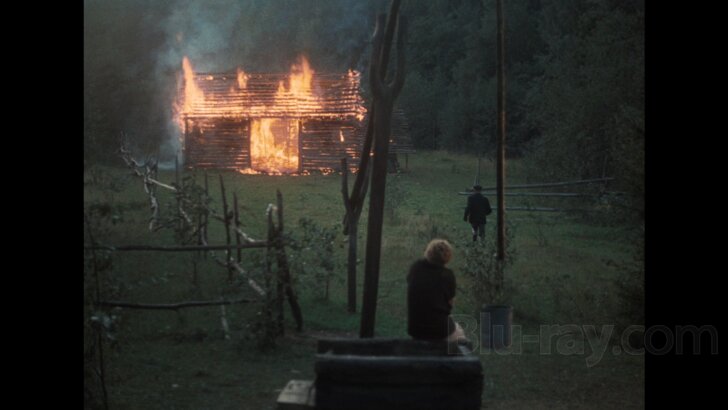
Presented in its original aspect ratio of 1.37:1, encoded with MPEG-4 AVC and granted a 1080p transfer, Mirror arrives on Blu-ray courtesy of Criterion.
The following text appears inside the booklet provided this Blu-ray release:
"This new digital transfer was created in 2K resolution from the 35mm original camera negative and restored by Mosfilm. The original monaural soundtrack was remastered from a 35mm magnetic track.".
I would not be surprised if it was revealed that the same people that prepared the 2K restoration of Come and See worked on the recent 2K restoration of Mirror as well. I think that both have very similar qualities and are terrific.
On my system Mirror looked very beautiful. I could instantly tell that its restoration was done with great care and attention to detail because the subtle contrasts of the original cinematography are very effectively reproduced. Obviously, delineation, clarity, and depth fluctuate during the different 'memories', but these episodes have the same convincing organic qualities that ultimately make the viewing experience quite special. The color-grading job is excellent as well. All primaries look healthy and solid, while the supporting nuances are very convincingly balanced. There are no traces of problematic digital work. The entire film looks spotless as well. (Note: This is a Region-A "locked" Blu-ray release. Therefore, you must have a native Region-A or Region-Free players in order to access its content).
Mirror Blu-ray Movie, Audio Quality 
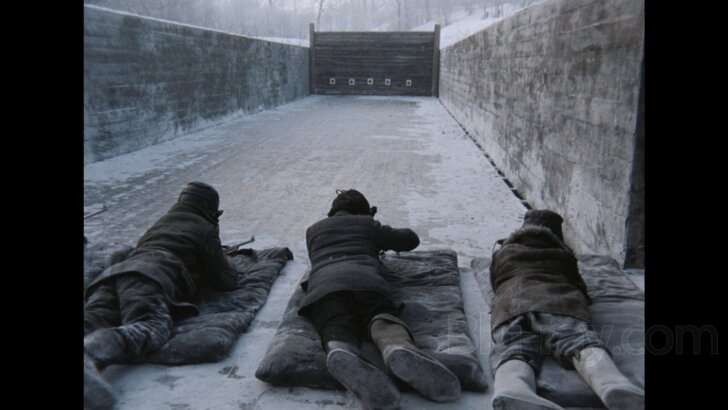
There is only one standard audio track on this Blu-ray release: Russian LPCM 1.0. Optional English subtitles are provided for the main feature.
The lossless track is excellent. It is crystal-clear, sharp, and very stable. Predictably, the original soundtrack does not produce any memorable dynamic contrasts, but there are plenty of fine nuances that add to the special atmosphere. The dialog and narration are very easy to follow. There are no transfer-specific anomalies to report.
Mirror Blu-ray Movie, Special Features and Extras 
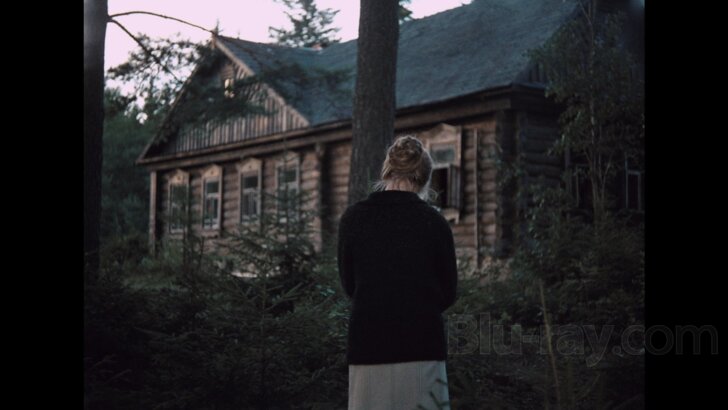
BLU-RAY DISC ONE
- Andrei Tarkovsky: A Cinema Payer - this recent documentary focuses on the life and legacy of Andrei Tarkovsky. It was made by his son, Andrei A. Tarkovsky, and premiered at the Venice Film Festival in 2019. In Russian, with optional English subtitles. (103 min).
- The Dream in the Mirror - this new documentary examines the career and intimate world of Andrei Tarkovsky. It features new interviews with collaborators and family members. It was produced by Louise Milne and Sean Martin for Criterion in 2021. In Russian and English, with optional English subtitles. (54 min).
- Islands: Gerogy Rerberg - this archival documentary takes a closer look at the career and legacy of cinematographer Georgi Rerberg, who lensed Mirror. The documentary was produced for Russian television in 2007. In Russian, with optional English subtitles. (53 min).
- Eduard Artemyev - in this new video interview, composer Eduard Artemyev discusses his working methods and professional relationship with Andrei Tarkovsky. The two collaborated on Mirror, Solaris, and Stalker. The interview was conducted for Criterion in 2021. In Russian, with optional English subtitles. (23 min).
- Alexander Misharin - in this archival interview, screenwriter Alexander Misharin recalls his work with Andrei Tarkovsky on Mirror. The interview was conducted in 2004. In Russian, with optional English subtitles. (33 min).
- Andrei Tarkovsky - presented here are two archival interviews with Andrei Tarkovsky that appeared on French television in 1978. Both address the director's working methods and creative instincts.
1. 1 p.m. News. (5 min).
2. Nord-Pas-de-Calais News. (4 min).
- Booklet - an illustrated booklet featuring an essay by critic Carmen Gray and the 1968 film proposal and literary script by Tarkovsky and Misharin that they ultimately developed into Mirror, as well as technical credits.
Mirror Blu-ray Movie, Overall Score and Recommendation 
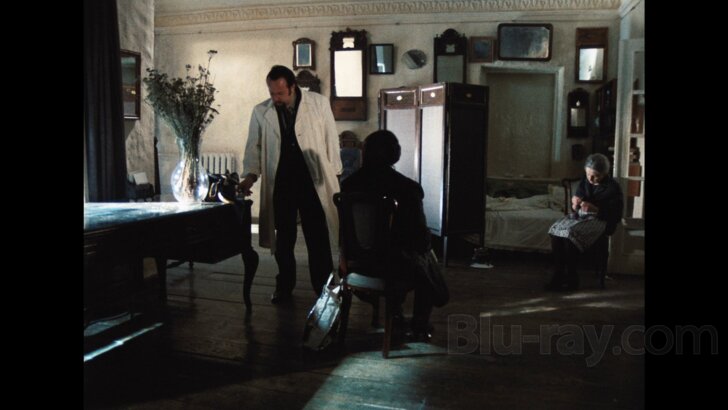
If you approach Mirror prepared to see the type of film other people have described in various articles, interviews, and programs, there is an excellent chance that your expectations will not be met. Why? Because it engages, frustrates and delights in ways that quite simply aren't universal. Naturally, while I would concede that there are some key themes in it that are easy to recognize, I don't believe there is one proper way to experience and deconstruct it. Criterion's release is sourced from a very beautiful recent 2K restoration that was prepared at Mosfilm in Russia. HIGHLY RECOMMENDED.
Similar titles
Similar titles you might also like

Andrei Rublev
Андрей Рублёв | Andrey Rublev | Tarkovsky's Preferred Cut and Original versions
1966

Ivan's Childhood
Ива́ново де́тство / Ivanovo detstvo
1962

The Sacrifice 4K
Offret
1986

Stalker
Сталкер
1979

Nostalghia 4K
1983

Come and See
Иди и смотри / Idi i smotri
1985

Mishima: A Life in Four Chapters 4K
Director's Cut
1985

Solaris
Солярис / Solyaris
1972

The Color of Pomegranates
Նռան գույնը / Sayat Nova
1969

Wild Strawberries
Smultronstället
1957

Satantango
Sátántangó
1994

Yi Yi
2000

In the Fog
V tumane
2012

The Silence
Tystnaden
1963

Bicycle Thieves
Ladri di biciclette
1948

Where Is the Friend's House?
خانه دوست کجاست / Khane-ye doust kodjast?
1987

Persona
1966

The Human Condition III: A Soldier's Prayer
人間の條件 / Ningen no jôken / Parts 5 and 6
1961

Pather Panchali 4K
পথের পাঁচালী / Song of the Little Road
1955

Dekalog
The Decalogue
1988